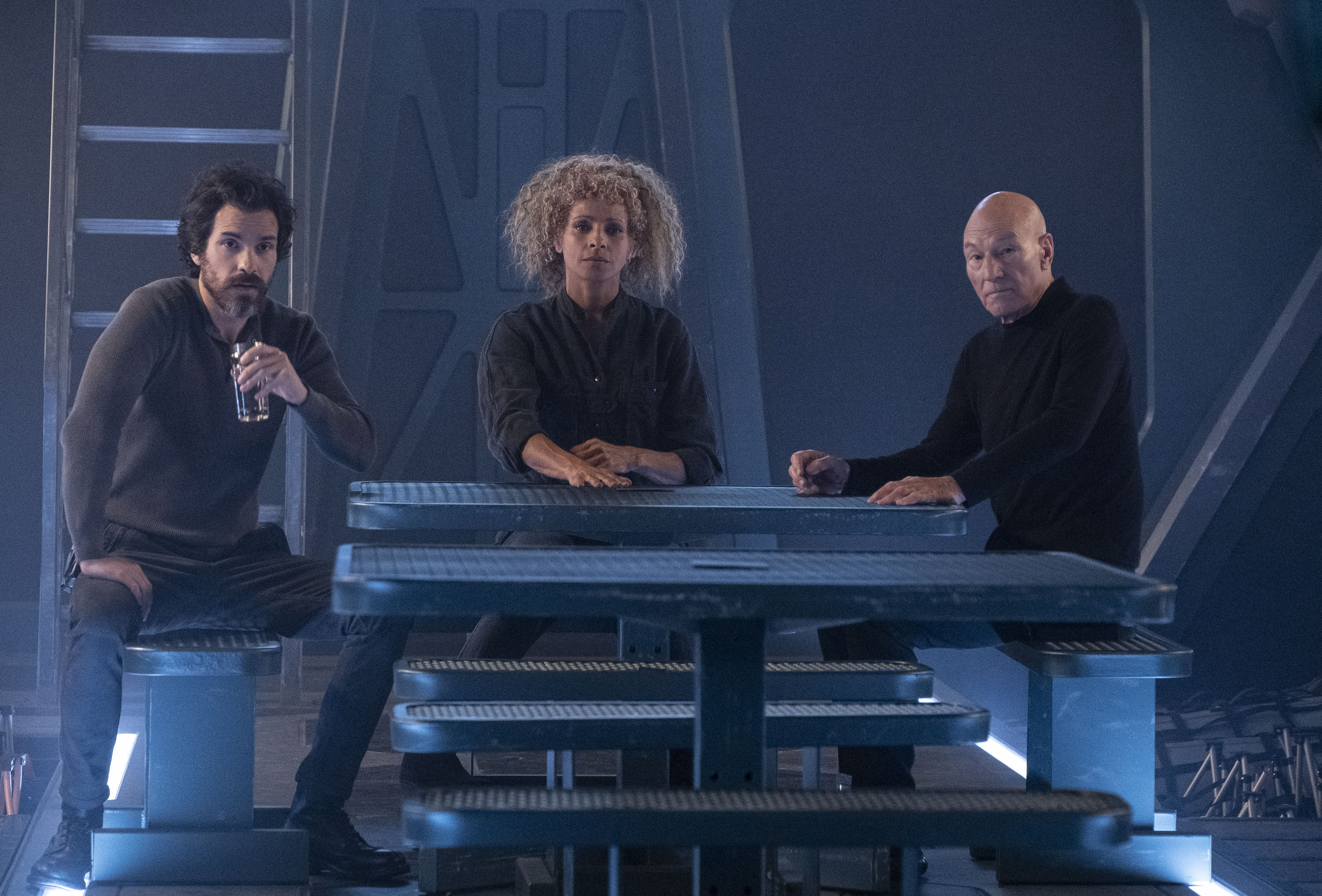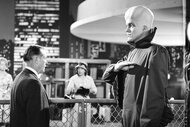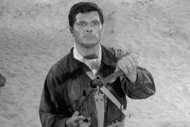Create a free profile to get unlimited access to exclusive videos, sweepstakes, and more!
All the ways Star Trek: Picard flipped the Trek universe on its head for the better

Now that Star Trek: Picard has finished its inaugural season, we have a full view of the 10-part tale. The season finale gave us thematic payoffs that have been in play all season long, and seeing the full picture (Sokath, his eyes uncovered!), we now see all of the many ways that this series took the traditional Trek playbook and made it much more 2020.
We’ve never seen a Trek main crew like that of La Sirena. Until Picard, every Star Trek crew has had its own quirks, but, for the most part, they tend to follow the original series' formula, as per creator Gene Roddenberry’s mandate: a ship of enlightened humans roaming around the galaxy fixing other civilizations.
This carried over into Star Trek: The Next Generation. The TNG crew, led by Jean-Luc Picard (Patrick Stewart), usually had their stuff together. Star Trek: Voyager changed up the formula a bit and put some Maquis discord on the crew (and when those storylines ran their course, they added a former Borg), and Star Trek: Enterprise featured a crew that was experiencing space and all its challenges for the first time — it was a steep learning curve for them.
The Trek show that really took the flaws and drama of the crew and sent them to warp was Star Trek: Deep Space Nine; a station full of conflicting ideals and goals resulted in drama the likes of which Roddenberry would probably not have liked. And Star Trek: Discovery, arguably, goes off the original template more than any other series, having the main character commit mutiny in the pilot, for instance.
What Star Trek: Picard does that none of the others did, however, is return to our heroes after they have flown off into the stars. Picard's once-great Enterprise crew has scattered and changed — sometimes not always for the better. What happened to them after the credits rolled, and history kept boldly going?
Picard tells us just that, and it wasn’t all filled with hope. But it is, most definitely, filled with humanity. Let’s look at all the ways Jean-Luc Picard's Enterprise crew crashed, burned, picked themselves up, recovered, and struck out anew in Star Trek: Picard.
**SPOILER WARNING: All crew to spoiler stations, from this point forward there will be spoilers for the entirety of Star Trek: Picard Season 1.**
FAILURE
Nobody likes to see their heroes fail, and here the great Jean-Luc Picard is depicted as a failure in almost every way. He begins the series as such, rather. He's failed, he knows it, he wallows in it, and he waits to die on his vineyard.
He then spends the season making amends, and remembering who he once was. Once he remembers, he takes the appropriate actions. This has immense power — the great captain that we remember from TNG is no saint. He’s as flawed as the rest of us.
The Federation is also failing in its primary ideals, as evidenced by the choices it's made based on Synthetic life and the Romulan rescue operation. It's been duped from the inside, but this is not the first time this has happened. A wide variety of crazy Admiral episodes (as well as anything related to Section 31) paved the way for these missteps.
Heroes can fail, but that doesn’t reduce them in any way. Humans are fallible, Synthetics are fallible, and human organizations are fallible. It is the actions they take in recovering from these failures that make them what they are.
DECEPTION
No Trek crew has had as much deception and intrigue going on as Picard's does. Dr. Jurati (Alison Pill) turns out to be a double agent (more than once), Rios (Santiago Cabrera) suspects Raffi (Michelle Hurd) of being a spy, and everyone second-guesses Picard.
There are a lot of lies and half-truths that get unfurled, but for the most part, this crew doesn’t trust each other. They haven’t earned that, so everyone is looking at each other like they could be one of the final five Cylons.
The only honest one in the bunch is Elnor (Evan Evagora), who practices the way of absolute candor. He couldn’t lie even if he wanted to, and his brutal honesty shines a light on everyone else’s suspicions. You never know what to expect from anyone.
THE TRAUMA NEVER ENDED
The writers of TNG had to fight to get the episode "Family" made. Coming right after Picard’s assimilation (and de-assimilation) in the famous "The Best of Both Worlds" two-parter, everyone felt strongly that Picard couldn't just proceed to the next wacky holodeck episode of the week. We saw Picard haunted by his Borg trauma and coming to terms with it all. It was something that the series almost never did.
Here, everyone is dealing with PTSD on a constant basis. Rios is not over the death of his former captain, and Picard is riddled with guilt over Data. Seven of Nine continues to deal with being removed from the collective, and Raffi? Raffi copes with her struggles by drinking and drugging.
After being shunned by her son, Raffi has a relapse on the bridge of the La Sirena. It is hard to watch because Hurd makes Raffi’s barely functioning alcoholism brutally real. She doesn’t just "get over" what happened with her son; she tries (and fails) to drink the pain away.
It's appropriate and painfully real. Basic human issues such as addiction would never just vanish. There is no cure, not even in the 24th century. Even in Roddenberry’s paradise, they are all "still working on it," as Picard says to Seven.
COLORFUL METAPHORS
They curse like sailors. Why wouldn’t they? Trek has boldly cursed before — Data famously gave us an expletive in Star Trek: Generations, and though Discovery is much more current, it drops the photon F-bomb whenever it feels like it.
Kirk and Spock had their discussion about all of this in Star Trek IV: The Voyage Home — in the old days, no one would pay any attention to you unless you swore every other word. Spock attempted it to hilarious effect.
Maybe that was just the 23rd century, because in the latter part of the 24th, colorful metaphors have returned. Why wouldn’t they? Why would humans suddenly stop swearing? Picard isn't doing an Andrew Dice Clay routine or anything — whenever the curses are deployed they make sense for the character who is deploying them. If Rios wants to curse out one of his own holograms, then he should be allowed to.
Look, it’s just the way they talk here. Cursing is human, and personally I’ll never f***ing stop, so I don’t need my Trek crew to stop either. If Deep Space Nine was being made right now, they’d be swearing up and down, left and right.
YET HOPE SPRINGS ETERNAL ...
All of the above makes this sound like a series full of doom and gloom, but the one place where Picard truly remains firmly rooted in the Trek universe is that in the end it is revealed to be filled with, that’s right, hope.
Our heroes fail ... but they get back up. They relapse, but then they try to heal. They do bad things, but they make amends. Jean-Luc spends most of this series trying to right his many wrongs, and so does the rest of his crew. It all leads up to the final episode, in which Picard is trying to convince Soji (Isa Briones) to make the right choice. He convinces her by saying that ultimately they are all just there for each other.
We don’t have to give in to our baser natures, even when we are suffering from failure, greed, addiction, and loss. We can heal, we can work on it, and we can try to be better.
The "working on it" matters, because we are all responsible for our actions. This is the true power of the first season. As Picard says, "To be alive is a responsibility, as well as a right."
It takes him 10 episodes to get there, but get there he does. He is no saint, and neither are any of us. We're only human, after all.


























